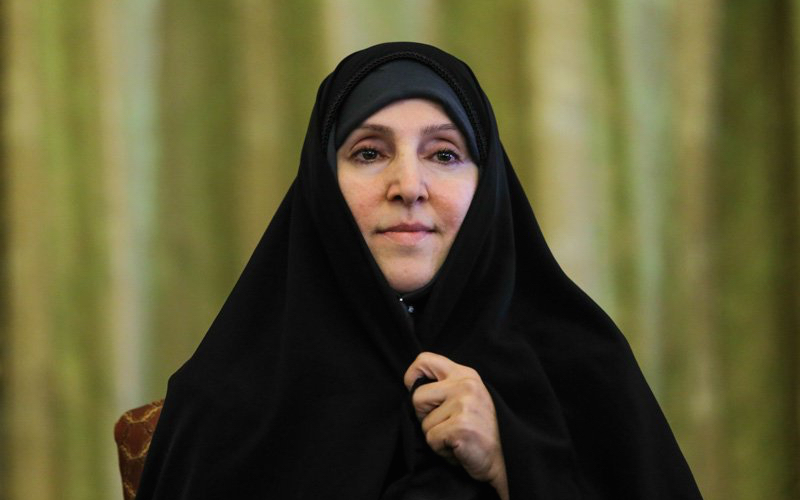
Iranian Women Still Face Barriers Despite Appointment of Woman Ambassador
Appointing career diplomat and former Iran Foreign Ministry Spokesperson Marzieh Afkham to head the Iranian delegation in Malaysia is certainly a positive step forward for women’s rights in Iran, but overall women’s freedoms in the country remain severely constrained. Iranian President Hassan Rouhani ran on improving human and women’s rights, yet after two years, little has changed.
The World Economic Forum 2014 Gender Gap Index, which measures economic contribution, educational accomplishment, and political empowerment, ranks Iran 137 out of 142 countries. While these data reveal that Iranian women achieve a high level of education, about 62 percent of Iranian women reach secondary or higher level education compared to 69 percent of men, it does not necessarily translate well to societal life. For example, women only hold a small number of parliamentary seats. In the 9th Iranian parliament (2013 – present) women hold 9 out of 288 seats. The highest number of women serving in parliament came during the 5th Iranian parliament when women occupied 14 out of 274 seats. Moreover, female participation in Iran’s labor force lags well behind that of males, 16.4 percent compared to 72.5 percent. These statistics certainly make Afkham’s appointment to ambassador, the second woman to hold the title, an accomplishment. However, there are many areas where women’s rights can improve.
Women, for example, face heavy legal discrimination as the Iranian judicial system overwhelmingly favors men. In a marital context, men can unilaterally decide if they want a divorce without women’s consent.
In the past two decades, women have made some headway, being allowed to divorce their husband under special circumstances. Even in the context of court testimony, a woman’s testimony is weighted less than that of a man.
Married women are also required to obtain their husband’s approval to travel abroad. One such example occurred this September when the captain of the Iranian women’s national soccer team, Niloufar Ardalan, was forbidden by her husband from traveling overseas for a competitive match in Malaysia. Her husband’s reasoning for this decision was that he did not want his wife to miss their child’s first day of school.
Both genders are permitted to vote, but unlike their male counterparts, females are not allowed to run for the Office of the Iranian Presidency. In response to an estimated 30 women who submitted bids for the 2013 Iranian presidency, Mehr News Agency quoted Ayatollah Mohammad Yazdi saying the “laws does not approve” of a woman in the presidency and a woman on the ballot is “not allowed,” Huffington Post reported.
Although women are permitted to drive vehicles, they must correctly wear proper attire, the hijab, or face imprisonment or a monetary fine. If women choose to take public transportation, they ride in “women only” subway cars and buses. Some might consider this to be a step back for women’s rights, but this concept is found outside Iran; Japan, Mexico, and other countries have implemented similar transportation procedures.
Some Iranian women government officials advocate for the advancement of Iranian women’s rights. In an address to the 59th Session of the Commission on Status of Women at the United Nations this March, Iranian Vice President for Women and Family Affairs Shahindokht Molaverdi, articulated that “despite some progress” towards strengthening women “progress towards the full realization of women’s rights is still slow and imbalanced.” However, Molaverdi might have discredited herself by saying, “The Islamic Republic of Iran has always had the empowerment of women and improving their status…on its agenda while observing their human dignity.”
The ensuing month, Molaverdi had sharp words for Tehran officials because they did not allocate enough government vacancies to women. This incited her to say that discrimination on the basis of gender, “does not correspond with the President [Rouhani]’s promises.”
Although Tehran’s appointment of a second woman ambassador is a positive step toward advancing women’s rights, closer examination shows the country has a long road ahead for women to gain equal societal footing.

